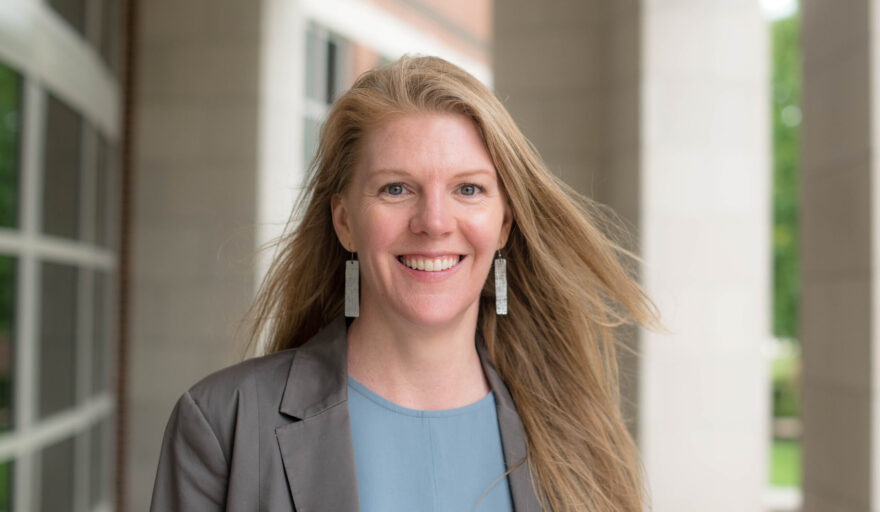Applying a Futures Lens to Societal Challenges
Julie Muñoz-Nájar
Clinical Associate Professor, MSW '08

Julie Muñoz-Nájar, Clinical Associate Professor, was awarded a prestigious fellowship at the Social Work Health Futures Lab, a national program of the Robert Wood Johnson Foundation and hosted by the Portland State University School of Social Work.
The fellows have spent three of the last 18 months learning about how to apply a foresight lens and will continue to apply it to many societal challenges.
“I am over the “futuristic” moon when I think about the privilege it is to collaborate with like-minded social workers and be imaginative and radical about ideas and practices our profession will need in 5, 10, or 100 years from now,” said Julie Muñoz-Nájar.
The 26 futures-fellows collaborative comprises of a diverse array of social work educators, researchers, practitioners, and students. The Primary Investigators, Dr. Laura Nissen, from Portland State University and Advisor, Dr. Jake Dungan, from the Institute of the Future, are facilitating the discovery of foresight practice by introducing futures thinking frameworks and bringing futures experts into lab conversations around topics like refugee justice, belonging, technology harms, and climate change, etc.
After several years of examining and observing inequities in technology, Muñoz-Nájar developed and piloted a new course called Technologies: Social Issues, Ethics and Design in the Fall of 2020. In the same semester, the call for fellows was announced and the prospective congruence of the topics discussed in the course and the mission of the health lab emerged.
“My fellowship proposal included a playful video artifact, set in the year 2070, where I imagined a world where a social worker can lead a technology “Foresight” 500 company as the CEO (Curator, Educator, and Opportunist). I imagined this social worker leading a user-owned healthcare cooperative that works on analyzing decolonized data, to assist the most vulnerable populations to manage their chronically healed health conditions. The users, or “Givers” would earn a cryptocurrency called “Empatea” for every day they help undue climate change in their region,” stated Muñoz-Nájar.
Rewinding from the futuristic scenario above and back to 2021, Muñoz-Nájar’s personal aim for the fellowship is to create awareness, community approaches, educational tools, and job skills that build wakefulness to the harms and ethical considerations of technology while also exploring opportunities to leverage the enormous good emerging tech can bring to the profession.
“I am personally hoping to bridge practitioners in Illinois to this futures work. I am eager to hear from and collaborate with students and peers in the field and serve as a liaison back to this incredible working group imagining beyond tomorrow,” stated Muñoz-Nájar.
To explore more about the broad scope of social work futures work, please check out Dr. Laura Nissen’s blog: https://socialworkfutures.com/. You can also find Julie tweeting about these topics and more @julie.munoznajar using the #swfutures hashtag.
As announced previously, Rachael Dietkus, Associate Director of Programs at Siebel Center for Design, founder of Social Workers Who Design, and MSW alumna (2010), is also one of the 26 fellows representing the University of Illinois Urbana-Champaign. Dietkus’ fellowship will focus on the intersections of social work, design, and trauma.
Dietkus and Munoz-Najar will be featured in upcoming e-newsletters to share more details of their respective fellowship journeys and to engage SSW alumni and current Illinois practitioners on future matters of the social work profession.